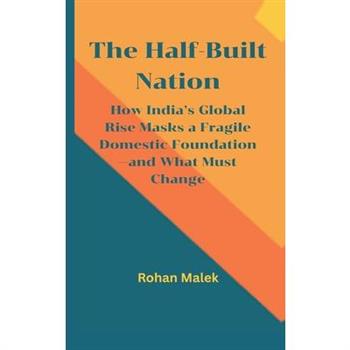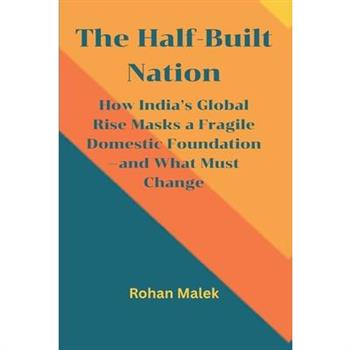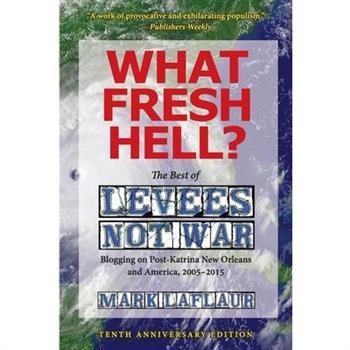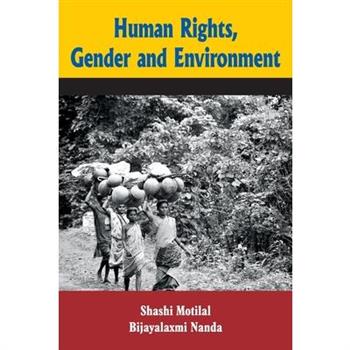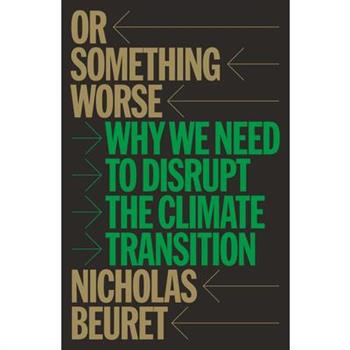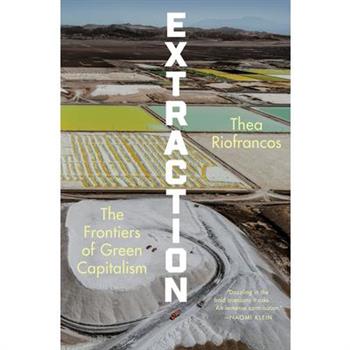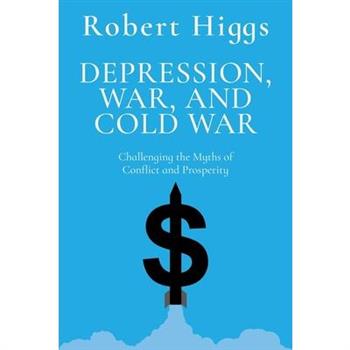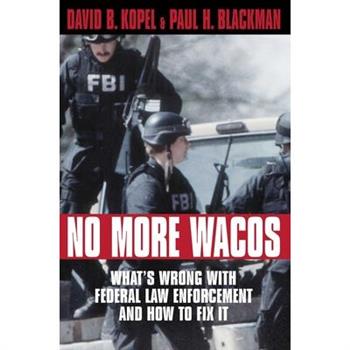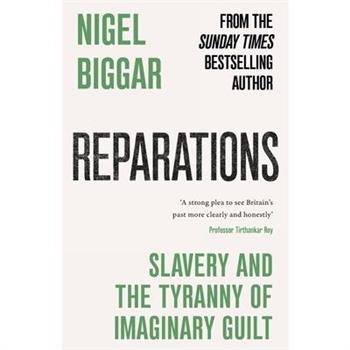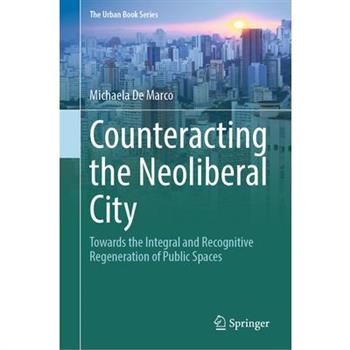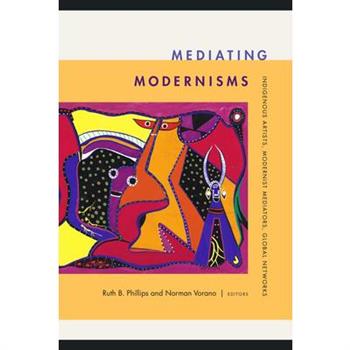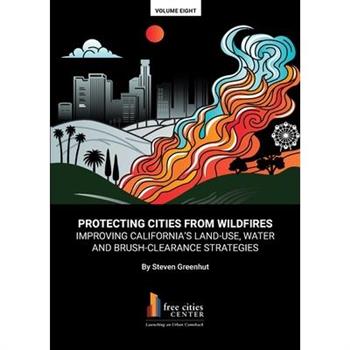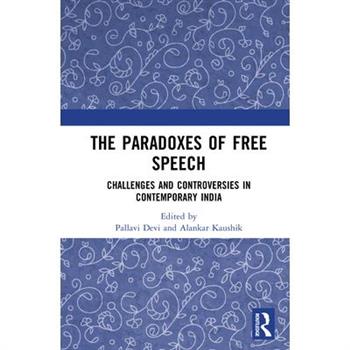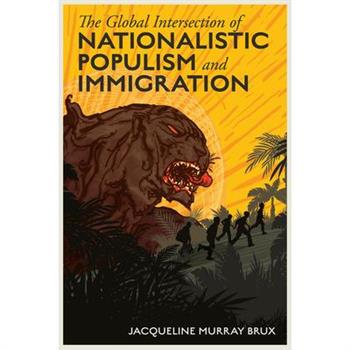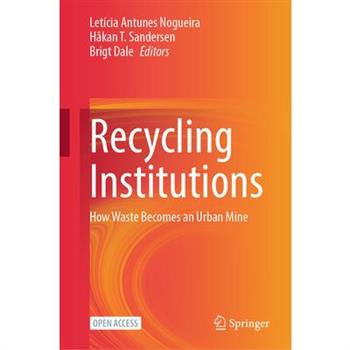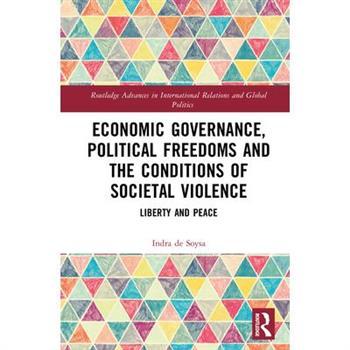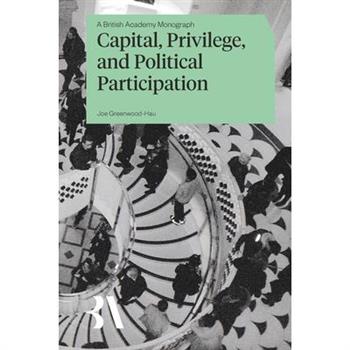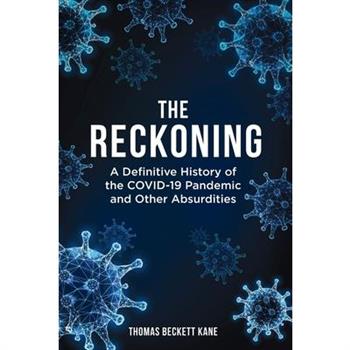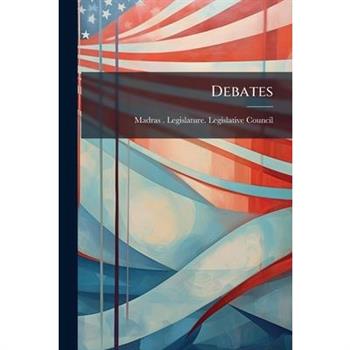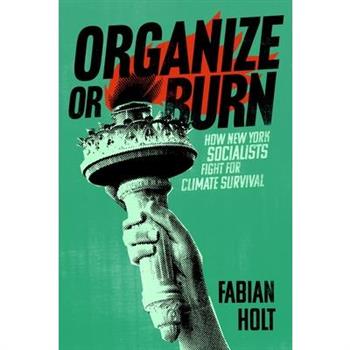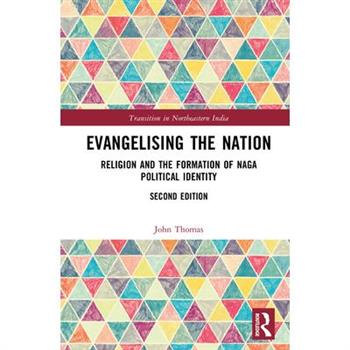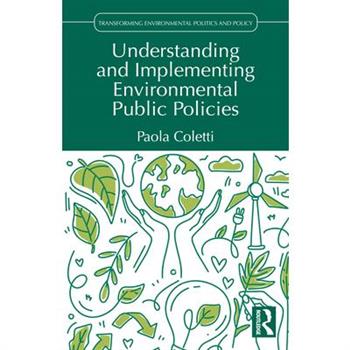Water Wars
The twenty-first century will not be defined by oil, territory, or ideology-it will be defined by the struggle for water. From rivers that cross hostile borders to melting glaciers that once sustained empires, the world is entering a precarious age where water scarcity geopolitics determines the survival of nations, the stability of cities, and the security of billions.This book reveals how the hidden battle for the planet's most vital resource is already reshaping the global order. Drawing on history, science, and diplomacy, it shows why the global water crisis is more than an environmental issue-it is the new frontline of power. Case studies from the Nile, Indus, and Colorado rivers expose how transboundary rivers conflict can trigger war or force cooperation. Stories of collapsing aquifers, vanishing glaciers, and crumbling urban infrastructure highlight why groundwater depletion crisis and mismanagement put every society at risk.Readers will also discover how technology and policy are rewriting the map of survival. The politics of desalination, the rise of water diplomacy, and the complex world of hydropolitics reveal the opportunities and dangers of treating water as both a commodity and a right.This book is written for globally minded readers-policy watchers, students, professionals, and anyone concerned with climate change and water security-who want more than warnings; they want clarity. It offers a sharp framework for understanding why some nations thrive in the age of scarcity while others collapse, and what ordinary citizens can do to shape the future.By the final page, you will see water not as a silent backdrop to civilization but as the decisive force that will chart the next century's conflicts, alliances, and survival itself.
The Half-Built Nation
Why does the world's most populous democracy, with space missions, digital innovation, and geopolitical clout, still struggle to provide clean water, functioning schools, and safe toilets to millions? This is not just a paradox-it's a wake-up call.This urgent and unflinching book explores why India is still poor despite its global rise, dissecting the cracks in its foundation even as the superstructure soars. It reveals the hard truths behind india's development crisis-how glitzy economic growth often masks deep local inequality, institutional fragility, and the unmet promise of democracy.Written for policy thinkers, engaged citizens, students, and anyone invested in India's future, it goes beyond surface-level commentary to ask the toughest questions: - Can economic growth vs human development be reconciled? - Why has indian public policy failure become systemic? - How do caste, gender, and infrastructure gaps derail the path forward?Drawing on real stories, sharp data, and a panoramic view of India's political and economic journey, this is not a tale of decline-but a call to build differently. It compares india vs china development trajectories, questions the obsession with GDP, and argues for re-centering dignity, access, and justice as core national goals.The insight is clear: india global power means little without broken infrastructure being fixed, without the unseen majority gaining visibility and voice. Readers will walk away with a deeper understanding of the future of Indian economy-and what it will truly take for a rising power to rise from within.
The Half-Built Nation
Why does the world's most populous democracy, with space missions, digital innovation, and geopolitical clout, still struggle to provide clean water, functioning schools, and safe toilets to millions? This is not just a paradox-it's a wake-up call.This urgent and unflinching book explores why India is still poor despite its global rise, dissecting the cracks in its foundation even as the superstructure soars. It reveals the hard truths behind india's development crisis-how glitzy economic growth often masks deep local inequality, institutional fragility, and the unmet promise of democracy.Written for policy thinkers, engaged citizens, students, and anyone invested in India's future, it goes beyond surface-level commentary to ask the toughest questions: - Can economic growth vs human development be reconciled? - Why has indian public policy failure become systemic? - How do caste, gender, and infrastructure gaps derail the path forward?Drawing on real stories, sharp data, and a panoramic view of India's political and economic journey, this is not a tale of decline-but a call to build differently. It compares india vs china development trajectories, questions the obsession with GDP, and argues for re-centering dignity, access, and justice as core national goals.The insight is clear: india global power means little without broken infrastructure being fixed, without the unseen majority gaining visibility and voice. Readers will walk away with a deeper understanding of the future of Indian economy-and what it will truly take for a rising power to rise from within.
Water Wars
The twenty-first century will not be defined by oil, territory, or ideology-it will be defined by the struggle for water. From rivers that cross hostile borders to melting glaciers that once sustained empires, the world is entering a precarious age where water scarcity geopolitics determines the survival of nations, the stability of cities, and the security of billions.This book reveals how the hidden battle for the planet's most vital resource is already reshaping the global order. Drawing on history, science, and diplomacy, it shows why the global water crisis is more than an environmental issue-it is the new frontline of power. Case studies from the Nile, Indus, and Colorado rivers expose how transboundary rivers conflict can trigger war or force cooperation. Stories of collapsing aquifers, vanishing glaciers, and crumbling urban infrastructure highlight why groundwater depletion crisis and mismanagement put every society at risk.Readers will also discover how technology and policy are rewriting the map of survival. The politics of desalination, the rise of water diplomacy, and the complex world of hydropolitics reveal the opportunities and dangers of treating water as both a commodity and a right.This book is written for globally minded readers-policy watchers, students, professionals, and anyone concerned with climate change and water security-who want more than warnings; they want clarity. It offers a sharp framework for understanding why some nations thrive in the age of scarcity while others collapse, and what ordinary citizens can do to shape the future.By the final page, you will see water not as a silent backdrop to civilization but as the decisive force that will chart the next century's conflicts, alliances, and survival itself.
Echoes of Injustices
James M. Violon, born June 6, 1990, in Valencia City, Bukidnon, Philippines, is a distinguished academic and legal professional. He graduated cum laude with a BA in Political Science from Central Mindanao University in 2012 and earned a Master in History degree from Mindanao State University-Iligan Institute of Technology in 2016. In 2021, he completed his Juris Doctor at Bukidnon State University and, in 2024, obtained a Doctorate in Education in Leadership and Management from Liceo de Cagayan University, graduating with the highest academic honor, Meritissimus. Professionally, Violon served as an Associate Professor V at Bukidnon State University and is currently the Executive Assistant IV at Central Mindanao University. An active researcher, his work focuses on leadership development and opportunities for women in higher education leadership roles.
Gilded Rage
** A PUBLISHERS WEEKLY BEST BOOK OF 2025 **** A FINANCIAL TIMES BEST BOOK OF 2025 **'Lively and provocative.' FINANCIAL TIMES'Makes a convincing case for how tech became radicalized.' BLOOMBERG'Revelatory.' THE BULWARK'sharp and ominous...an essential unmasking of the growing extremism among America's wealthy.' PUBLISHERS WEEKLY What happens if the world's richest and most powerful men decide to dismantle democracy? In Gilded Rage, New York Times bestselling author Jacob Silverman takes us inside the surreal, high-stakes world of Silicon Valley. This is the story of the political awakening and radicalization of a cabal of tech billionaires and their descent into ideological extremism. Flush with cash from the zero-interest era, addicted to their own mythology, these men have began reshaping the world in their image -- and it should terrify us all. At the center is Elon Musk, the mogul whose obsession with the "woke mind virus" has turned him from a tech innovator to an ideological crusader. But Musk is just the beginning. Silverman maps a sprawling network of radicalized elites - from Peter Thiel and JD Vance to the financiers bankrolling Donald Trump's return - who are using their platforms and their money to ensure a political revolution that's already underway. This is not just a book about tech. It's about power. We meet the billionaires funding life-extension labs and embracing apocalyptic visions of AI. We examine the populist rhetoric that is leading to the ruthless dismantling of democratic norms. And we enter the strange, darkly comic world of the tech-oligarchy where libertarian dreams meet authoritarian impulses, and where the people with the most influence over our lives are the least accountable. Silverman travels from San Francisco to Miami, New York to DC, following a movement that's rewriting the rules and oftentimes fighting a war against reality itself. With sharp reporting and a cast of extraordinary characters, Gilded Rage is a gripping, essential dispatch from the front lines of the billionaire revolution. If you want to understand who is trying to control the future, and why, then this is the book you need to read.
A Seventh Man
Why does the Western world look to migrant laborers to perform the most menial tasks? What compels people to leave their homes and accept this humiliating situation? In A Seventh Man, John Berger and Jean Mohr come to grips with what it is to be a migrant worker--the material circumstances and the inner experience--and, in doing so, reveal how the migrant is not so much on the margins of modern life, but absolutely central to it. First published in 1975, this finely wrought exploration remains as urgent as ever, presenting a mode of living that pervades the countries of the West and yet is excluded from much of its culture.
What Fresh Hell?
What Fresh Hell? brings together ten years of reporting and commentary on war and peace, infrastructure, the coastal and global environment besieged by climate change, and politics and society in the Obama and Bush-Cheney years. The New Orleans-dedicated, New York-based blog Levees Not War was founded in 2005 after Hurricane Katrina. This collection serves up liberal portions of sharp, spirited writing and interviews with experts like Ivor van Heerden, tributes to activists and civil rights leaders such as Tom Hayden and Medgar Evers, and on-the-ground reporting from Occupy Wall Street (2011) while marching with nurses, teachers, and transit workers. "This is not the fringe. This is the middle class."
The Candidates 1980
The Candidates 1980: Where They Stand represents a major effort by the American Enterprise Institute for Public Policy Research to contribute to educated and informed public discourse on the issues facing the American people not only in the 1980 presidential campaign but throughout the 1980s. The book is an outgrowth of AEI's continuing research project in social and political processes.
Human Rights, Gender and Environment
Addressing students, teachers, and the general reader, this book serves as a vital introduction to human rights. It meticulously explores how violations of these rights profoundly impact critical issues of gender and the environment. The narrative skillfully traces the underlying interconnections between these concepts against the stark backdrop of existing social inequalities, including those based on class, caste, gender, race, and ethnicity.Furthermore, the text delves into globalization's complex impact on societies already fraught with such disparities. It passionately argues for the urgent need to forge a more equal, non-discriminatory, and free world. As a comprehensive resource, it encourages readers to not only understand but also to critically think and engage with these pressing issues, helping them formulate their own informed positions. An excellent tool for students, educators, policy-makers, and concerned citizens alike, this book is an essential guide for anyone committed to building a more just global society.
Or Something Worse
The push for net zero has become a new arena for class conflict, where the powerful profit and the rest suffer. Nicholas Beuret's incisive critique and actionable strategies empower us to fight for a truly sustainable and equitable future. Or Something Worse exposes the bleak realities of the transition to a carbon-neutral economy. Greening the economy has become a one-sided war, as governments and businesses squeeze the living standards of ordinary people. We need to seize control of the transition in order to reshape it to equitable ends. Existing policies won't limit global heating to anything close to a safe level. Claims of sustainability disguise a zero-sum battle where the powerful profit and everyone else foots the bill. Green growth was supposed to bring increased wealth for all. Instead, work has been degraded, energy bills have soared, and the most basic necessities have become expensive and scarce. We need to disrupt green capitalism. Nicholas Beuret follows those already fighting back through 'don't pay' campaigns, blockades of fossil-fuel infrastructure, and community counter-planning. He shows we have the tools not only to stop climate change but to build a fairer future.
Terms of Servitude
This groundbreaking book documents how digital platforms and technology companies based in the United States support the Israeli settler-colonial project through censorship. Terms of Servitude demonstrates how social media has become a new tool of anti-Palestinian suppression even though these platforms were initially instrumental in advancing the Palestinian struggle. Features an introduction by Steven Salaita, Professor of English and Comparative Literature at the American University in Cairo. [Terms of Servitude is a joint production of The Censored Press and Seven Stories Press.] Terms of Servitude explores the paradox whereby prominent digital platforms like Meta, Google, and X that initially facilitated the expression of activism and advocacy for Palestinian liberation have come to fortify Zionist settler-colonialism. Through anti-Palestinian censorship and erasure often justified by so-called "terms of service" or "community standards" violations, these Big Tech companies provide the Israeli occupation forces with AI technology and metadata used to streamline genocidal colonial violence against Palestinians. Through original analysis and careful documentation, Omar Zahzah, Assistant Professor of Arab, Muslim, Ethnicities and Diasporas (AMED) Studies at San Francisco State University, traces the timeline from the Sheikh Jarrah uprisings of 2021 to the beginning of October 2023 to the most current developments to explain social media's role in advancing and suppressing Palestinian narratives. This revealing and alarming book explores what makes anti-colonial counter-narratives across digital platforms so urgent, and what resistance can and must mean in light of the consolidation of Big Tech with Israeli colonialism and genocide.
Extraction
Lithium, a crucial input in the batteries powering electric vehicles, has the potential to save the world from climate change. But even green solutions come at a cost. Mining lithium is environmentally destructive. We therefore confront a dilemma: Is it possible to save the world by harming it in the process?Having spent over a decade researching mining and oil sectors in Latin America, Thea Riofrancos is a leading voice on resource extraction. In Extraction, she draws on groundbreaking fieldwork on the global race for lithium. Taking readers from the breathtaking salt flats of Chile's Atacama Desert, to Nevada's glorious Silver Peak Range, to the rolling hills of the Barroso Region of Portugal, she reveals the social and environmental costs of "critical minerals." In Washington, DC, and Brussels, she tracks the escalating geopolitics of green technology supply chains. And she takes stock of new policy paradigms in the Global South, where governments seek to leverage mineral assets to jumpstart green development. In the process, Riofrancos uncovers surprising links across history, from colonial conquest to the 1970s energy crisis, to our still uncertain green future.While unregulated mining could inflict irreversible harm, Riofrancos offers optimistic proposals to transform the governance of mining while also reducing the sheer volume of global extraction. A rigorous and hopeful call to action, Extraction shares how we can harmonize climate goals with social justice--and set the planet on a course to ecological flourishing.
World Watcher
World Watcher: On Manufacturing War is an anthology of articles on the relentless effort of Trans-Atlantica - the United States and its NATO partners - to overcome peace and perpetuate war, selected by a veteran analyst on world affairs from an oeuvre of her published works spanning the past quarter century. Diana Johnstone demonstrates how the end of the Cold War, rather than bringing about world peace, made it clear that "the communist threat" had above all served as a pretext for aggressive militarization Subsequent pretexts focusing on human rights violations, "authoritarianism" and imaginary scenarios were to follow. A new age of endless war has been deliberately manufactured by the dominating powers of finance, mass media, entrenched institutions and opportunistic politicians. This book addresses: - the ideological aspects of Western aggressivity. - the opening act of NATO's rebirth as aggressive war-maker with the destruction of Yugoslavia, using humanitarian pretexts to preserve and extend hegemony. - the murderous Western assault on Israel's adversaries in the Near East, - the degraded political systems of the United States and its European dependencies as governance is reduced to support for financial capitalism, the military industry and war, and - the relentless Western effort to revise its alliance of World War II by using Ukrainian ultra-nationalism to defeat and eventually even dismantle Russia. The greatest danger to the United States and Europe is not any external enemy or foreign ideology, but their own arrogant commitment to pursuing an enduring world hegemony. Trans-Atlantica's destructive hostility toward the rest of the world is accompanied by a general decline in standards of education, social tranquillity and economic well-being for the majority of its own people. Their publics' understanding of the world is distorted by mainstream media, which teaches them to accept violence as the effective, indeed only, way to settle differences. War is being constantly manufactured between nations, within targeted nations and even at home between identity groups. Historically inept Western politicians are leading their nations to disaster. As at this writing, it is by no means clear how Western populations can find the political means to change course.
Depression, War, and Cold War
Offering a powerful interpretation of U.S. political economy from the early-1930s to the end of the Cold War, Higgs refutes many popular myths about the Great Depression and New Deal, the World War II economy, and the postwar national-security state that is still so pervasive today. In Depression, War, and Cold War, the scholarly sequel to his acclaimed classic Crisis and Leviathan, Robert Higgs sheds pioneering light on some of the most important of these questions: What accounts for the extraordinary duration of the Great Depression? What about "wartime prosperity" and whether World War II "got the economy out of the depression"? How did the war alter relations between the government and the leaders of big business? How did the postwar military economy alter the business cycle? What is Congress's role in the military-industrial-congressional complex? This seminal book answers these and other crucial questions by presenting new insights, evidence, and statistical analyses. Depression, War, and Cold War offers a powerful, solidly grounded interpretation of U.S. political economy from the early-1930s to the end of the Cold War, and refutes many popular ideas about the Great Depression and New Deal, the World War II economy, and the postwar national-security state still so pervasive today.
Strong Floor, No Ceiling
A Bold Plan to Rebuild the American Dream--for EveryoneWe're not just divided--we're adrift. Strong Floor, No Ceiling presents a bold, radically moderate blueprint to reconnect our fractured country and restore belief in opportunity, fairness, and shared progress.Entrepreneur, nonprofit leader, and public policy thinker Oliver B. Libby delivers a hopeful yet pragmatic path forward that blends innovation with tradition, growth with equity, and compassion with common sense. If you're weary of the extremes and the noise and looking for a future grounded in real solutions, this book is your rallying point.Inside, you'll discover: A new "Strong Floor" approach to healthcare, education, and infrastructure How capital markets and innovation can coexist with social safety nets A powerful call for civic renewal and shared national Strategies to restore trust in institutions and elections A practical framework for bipartisan progress The launch of a Strong Floor/No Ceiling organization to support candidates who will lead on these principles We should have a strong floor--made of access to education, healthcare, homes, jobs, capital, and justice--that all our citizens can stand atop. But we cannot afford this without celebrating success, entrepreneurship, and innovation--there should be no ceiling to our aspirations. These ideas may seem like they come from the opposite ends of the political spectrum, but they are fundamentally linked into the engine of the American Dream itself.If you believe in fairness, freedom, and a future worth fighting for, now is the time to act.
Shredding Paper
In Shredding Paper, Michael G. Hillard examines how Maine, once the nation's leader in paper production, saw its powerful industry decline. From the early twentieth century to the 1960s, Maine's paper mills shaped the state's economy and labor relations, but by the late twentieth century, shifting economic forces and foreign competition led to their collapse.Hillard explores the industry's economic history, showing how local paper companies once controlled policies on labor, land use, and water rights. As national conglomerates absorbed family-owned mills, Wall Street's demand for short-term profits after 1980 accelerated the industry's downfall.Through a detailed retelling of labor relations and worker experiences, Shredding Paper uncovers the story of Maine's blue-collar workforce, their struggles, and the economic transformations that reshaped the state. Shredding Paper offers a compelling analysis of how changing political economies led to the demise of a major American industry.
When Money Speaks
On April 2, 2014, the U.S. Supreme Court struck down aggregate limits on how much money individuals could contribute to political candidates, parties, and committees. The McCutcheon v. FEC decision fundamentally changes how people (and corporations, thanks to Citizens United) can fund campaigns, opening the floodgates for millions of dollars in new spending, which had been curtailed by campaign finance laws going back to the early 1970s. When Money Speaks is the first book to explain and dissect the Supreme Court's controversial ruling in McCutcheon, including analysis of the tumultuous history of campaign finance law in the U.S. and the new legal and political repercussions likely to be felt from the Court's decision. McCutcheon has been billed as " the sequel to Citizens United," the decision giving corporations the same rights as individuals to contribute to political campaigns. Lauded by the Right as a victory for free speech, and condemned by the Left as handing the keys of our government over to the rich and powerful, the Court's ruling has inflamed a debate that is not going away anytime soon, with calls for new laws and even a constitutional amendment on the Left-- while many on the Right (including Justice Clarence Thomas in his concurring opinion) call for an end to all contribution limits. Two of the nation's top First Amendment scholars-- Ronald Collins and David Skover-- have produced a highly engaging and definitive account of the case, including exclusive interviews with petitioner Shaun McCutcheon and other key players, as well as an eye-opening history of campaign finance law in the U.S.
No More Wacos
Waco and Ruby Ridge were neither conspiracies nor flukes. They represent the worst-case scenario of problems that now plague federal law enforcement, including its militarisation, judicial rubberstamping of search and arrest applications, aggressive and violent arrest procedures, indifference to religious beliefs, the complicity of an overzealous media, and failed congressional investigations. In "No More Wacos", David B. Kopel and Paul H. Blackman use their expertise in law and criminology to outline the evidence in these cases and dozens of others to explain how and why such tragedies occur. Meticulously documented, this volume analyses all sides of this complex subject: flawed search warrants, authorities ignoring the difference between religious and criminal suspects, and intra-governmental deception, among other issues. Whenever problems are found, specific remedies are proposed - over one hundred solutions in all - both comprehensive and technical in nature. Each is offered in the hope of preventing future Wacos by properly placing federal law enforcement under the rule of law.
Dead Center
An instant New York Times and USA Today bestseller! A memoir--and a manifesto--like no other, by a true maverick in American politics With a foreword by Nick Saban Dead Center: It is where Senator Joe Manchin III has stood his entire life. For him, it's where the real solutions lie, if we are ever going to tame the anger, bitterness, intolerance, and tribalism that have infected our political system. Through 43 years in politics, and 15 years in the Senate, Joe Manchin has stayed close to his roots, basing his principles in when, where, and how he was raised. Treat people with respect. Find dignity in work. Put people first and country before party. Be fiscally responsible and socially compassionate. Only vote for what you understand and can explain to your constituents. That's it. Dead Center is more than Senator Manchin's declaration of independence from the extremes on both sides. In this revealing and entertaining memoir, Senator Manchin combines eyebrow-raising, never-before-told stories from inside the Senate and the White House with insights into how government does--or doesn't--work. A memoir by one of America's most recognized leaders, Dead Center offers a path forward from our polarized political gridlock to governance based on what our American founders practiced: Common Sense.
Reparations
Many now claim that Western countries should pay reparations to former colonies for the lasting damage they caused, especially through slavery. Why is this claim being made now? How far does it make sense? And, more generally, how can historic wrongs be righted? Reparations removes the sloganeering from a newly fashionable cause, sets the issue in its proper historical context, and mounts an ethical counter-argument. The natural sequel to Nigel Biggar's bestselling and widely acclaimed Colonialism: A Moral Reckoning, it makes a powerful contribution to an increasingly prominent public debate.
Precarious
A Globe 100 Best Book of 2025 - One of The Hill Times' Top 100 Best Books in 2025 - Winner of the 2024 Dave Greber Freelance Writers Book AwardA series of profiles of foreign workers illuminates the precarity of global systems of migrant labor and the vulnerability of their most disenfranchised agents.In 2023, after weeks of investigation, United Nations Special Rapporteur Tomoyo Obokata came to a scathing conclusion: Canada's Temporary Foreign Worker program is "a breeding ground for contemporary forms of slavery." Workers complained of excessive hours and unpaid overtime; of being forced to perform dangerous tasks or ones not specified in their contracts; of being physically abused, intimidated, and sexually harassed; and of overcrowded, unsanitary living conditions that deprived them of their privacy and dignity.In Precarious: The Lives of Migrant Workers, Marcello Di Cintio ranges across the country speaking to those who have come from elsewhere to till our fields, bathe our elderly, and serve us our Double Doubles, uncovering stories of tremendous perseverance, resilience, and humanity, but also of precarity and vulnerability. He shows that vast swathes of our economy depend on the work of people we don't see, while expanding our awareness of what migrant work now entails, and revealing that our mistreatment of the most vulnerable among us diminishes our own dignity.
Defiant
A gripping first-hand expos矇 of the coordinated legal and political attacks against Donald Trump and his allies, revealing the deep-state efforts to undermine democracy. The 2024 election was a miracle comeback--Donald Trump, against all odds, reclaimed the White House after facing an unprecedented barrage of legal attacks and government harassment. But as Christina Bobb reveals in Defiant, the battle for America's future was far from over. Bobb's shocking, personal account takes readers behind the scenes of the infamous Mar-a-Lago raid, exposing unprecedented abuses of power: FBI agents breaking locks while offered keys, denying Trump's representatives access, and seizing privileged documents under a shroud of secrecy. She documents the relentless campaign of indictments, subpoenas, and media manipulation designed to destroy Trump and silence his supporters. But the lawfare didn't end at the ballot box. As Trump's new administration moved to restore the rule of law, blue-state officials, federal agencies, and activist judges openly defied his orders--launching lawsuits, blocking pardons, and vowing to undermine his agenda at every turn. Bobb uncovers the coordinated efforts to weaponize the justice system, from the disbarment of constitutional lawyers to the criminalization of alternate electors. Defiant is a bombshell expos矇 of the lengths the Left will go to maintain power--and a call to action for Americans who refuse to let their country be lost to tyranny. With exclusive details and unflinching courage, Christina Bobb sounds the alarm. The final test for America is here. Will we restore justice, or will we lose our republic forever?
A Woman's Fight
In this blending of historical fact and fiction, 19th century French feminist writer and speaker Maria Deraismes struggles against misogynistic men and the French government during the turbulent 1870s in Paris. Maria involves herself with the Paris Commune in 1871 and rallies behind the new socialist government believing it will end inequality. Violence erupts when troops break through the barricades on April 2nd and begin a bloody week to overthrow the Commune. Maria fights for equality and speaks openly for the people, but her words fall on deaf ears. With support from her Masonic friends, she pushes to be initiated into the male-only Order to prove women are no different than men and deserve to stand with them. It's a dangerous road she walks down but she refuses to give up, clinging to the French motto of Liberty, Equality, Fraternity.
Covert Action
A comparative international perspective challenges conventional narratives about unacknowledged intervention"Covert action" is generally understood as politically motivated and plausibly deniable interference by one state in the affairs of another state. It includes propaganda, political or economic subversion, paramilitary action, and assassinations. Covert action is the most consequential and controversial form of secret statecraft, and it has become a ubiquitous feature of international politics. However, it is often sensationalized or seen through a narrow, US-centric lens.Covert Action challenges this conventional narrative and redefines secret statecraft by offering a groundbreaking comparative international perspective that explores the practice of unacknowledged intervention across twenty countries and a range of eras. Bringing together leading scholars from around the world, this volume moves beyond the American, and wider, anglosphere perspectives to examine covert action practices across states, regime types, and time.This book will be important reading for historians, political scientists, and policymakers, and it provides a foundational study of the hidden mechanisms of international power. It takes a global perspective and thus transforms the understanding of how nations truly interact behind the scenes, revealing covert action as a complex form of international statecraft.
Counteracting the Neoliberal City
This book presents a groundbreaking theoretical and methodological framework for analyzing urban phenomena and urban policies and a pioneering approach to urban regeneration projects. The text advocates for an "Integral and Recognitive Urban Regeneration" of public spaces in cities to confront current neoliberal urban policies, which have been ineffective in achieving genuine overall "wellbeing" in contemporary urban environments. "Integral and Recognitive Urban Regeneration" is a macro-process composed of several micro-contextualized urban projects that account for the complexity of urban spaces. This process goes beyond merely enhancing the aesthetics and functionality of architectural spaces, rather presenting itself as an educational, community-oriented, cooperative, creative, socializing, eco-friendly, multidisciplinary, and transdisciplinary process that serves as a platform for regenerating compromised ecosystems; promoting the cognitive, psychological, emotional, social, and political empowerment of resident communities; and addressing local and global forms of social and ecological injustice. As such, this book is an essential resource for students, researchers, academics, and experienced planners alike.
Borders of the Mind
What if everything you believed about where you belong-your identity, your homeland, your people-was a story someone needed you to believe?This provocative and eye-opening book reveals how the very idea of "us" and "them" was invented by states to control the minds of millions. Through gripping history and sharp psychological insight, it shows how governments have used national identity manipulation, political control through belonging, and the emotional roots of nationalism to shape not just borders, but the deepest parts of our self-perception.You'll discover how passports, myths, and schoolbooks became tools of power, how nations create enemies not out of necessity, but narrative. And how your sense of pride, fear, and loyalty may not be your own-but a design handed down through generations of control.This is not just a book about politics. It's about you.- Understand the real purpose behind identity and nationalism- Learn how imagined communities were engineered-and why they still hold sway- Explore the psychological machinery behind "othering" and mass obedience- Begin to deconstruct national myths and reclaim authorship of your own identityPerfect for readers of history, psychology, philosophy, and political thought, this book is for anyone who has ever wondered why we belong to nations-and what it would mean to live beyond them.If you've sensed that something about your cultural identity doesn't quite feel like a choice... you're not alone. This book is your invitation to break the trance, question the script, and see beyond the psychological history of borders.Because once you see the lines in your mind, you can begin to erase them.
The Craft of Winning Mandates, Campaign & PR Guide
"The Craft of Winning Mandates, Campaign & PR Guide", is a definitive exploration of how elections are truly won in the age of perception. Far beyond manifestos and speeches, this book reveals the hidden science of political communication, voter psychology, and narrative warfare that shapes modern democracy. Drawing from real campaign war rooms, the author exposes how slogans are born, how stories overpower statistics, and why emotion beats ideology in the battle for public opinion.Structured across four parts: Message & Perception, Voter Strategy, Media & Narrative Control, and Ground Game & Execution, this guide covers the entire machinery of modern campaigning. From shaping a leader's image and crafting memorable slogans to harnessing voter data, managing silent influencers, and controlling the post-vote buzz, every chapter offers sharp insights rooted in practice, not theory.Written by a seasoned political strategist who has managed high-stakes campaigns for Indian parties and leaders, headed election war rooms, and led grassroots strategies, the book combines insider knowledge with global research on persuasion and influence. A former personal secretary to the former Deputy Chief Minister and Member of Parliament, and a Public Service graduate with UPSC experience, he holds a strong foundation in Political Science and International Relations. Beyond politics, the author is a social activist, Founder and President of NGO TERRA, and Managing Director of Communira Media Pvt. Ltd.This is not just a manual for campaigners and students of politics. It is also a window for common people to understand the hidden strategies, psychological triggers, and communication games that decide elections. To understand politics today is to understand perception, and this book shows you exactly how it works.
Protecting Cities From Wildfires
Introduction‭ ‬Wildfires Should Serve As Wake-Up CallNews reports cite the beginning of the 2025 Los Angeles fires on January 7 at 10:30 am, as the Santa Ana winds blew a cloud of black smoke over heavily populated areas in and around Los Angeles. An hour or so later, NBC 4 Los Angeles reported that "gridlock formed on Sunset Boulevard," which "blocked people in traffic for miles as they desperately tried to evacuate and get away from the dangerous flames. The Palisades Fire quickly expanded, consuming homes, cars and anything in its path." The Eaton Fire in the San Gabriel Mountains began that evening.
The Paradoxes of Free Speech
This book explores the enduring tensions between free expression and regulation in an era of disinformation, surveillance, and digital monopolies. It brings together leading legal scholars, journalists, and media experts to examine the normative justifications for free speech, its role in democracy, personal autonomy, and knowledge production, while addressing its evolving challenges.The book traces the historical foundations of free speech, from colonial-era censorship to contemporary legal and philosophical debates. It examines the role of global tech giants like Google, Facebook, and Twitter in content regulation, exposing their lack of transparency and accountability. Key discussions include the dangers of algorithmic governance, the weaponization of fake news, and the judiciary's role in interpreting free speech in the context of sedition, gendered struggle, hate speech, digital hate and violence and media freedoms. Additionally, the book features an insightful interview with a veteran Indian journalist on the shifting landscape of press freedom in India.This book is an essential read for Constitutional law students, political scientists, researchers, policymakers, media professionals, and anyone interested in the future of free speech and expression in the world. It offers a nuanced understanding of how legal frameworks, technology, and politics shape the fundamental right to speech in today's complex internet age.
Assistance to Ukrainian War Refugees in Central Europe (2022-2024)
This book offers a comprehensive analysis of the unprecedented situation following the later stages of the war in Ukraine in 2022. It explores the experiences of millions of Ukrainians who sought refuge in neighboring countries and examines the wide-ranging support they received. Focusing primarily on Poland, Czechia, Slovakia, and Moldova, the book highlights both the assistance provided by these nations and the personal stories of those who benefited from it. Based on qualitative research, including interviews and discourse analysis, and complemented by an examination of governmental documents and organizational initiatives, this work provides an in-depth account of the efforts made to support those displaced by the conflict. This book will be of interest to academics and practitioners within the NGO and government sectors actively researching Ukrainian refugees in countries that have chosen to host larger numbers of Ukrainians, particularly in Europe and North America.
Economic Governance, Political Freedoms and the Conditions of Societal Violence
This book shows how the underlying causes of civil war and political violence are based in concrete conditions relating to economic governance. The author argues that what matters for cauterizing the potentiality of "sustainable" violence is economic governance, specifically growth-promoting governance that maximizes returns to investment due to competitive free-market processes upheld by the rule of law and the protection of private property rights. The arguments are assessed against three major forms of societal violence--civil wars, one-sided violence by states against ordinary citizens, and interpersonal violence that results in mortality.Political and economic rights and freedoms are clearly intertwined, but there may be advantages to prefacing one over another. This study shows why and how economic governance matters for generating civil peace, perhaps more so than rival perspectives based on the understanding that violence is motivated by political concerns and grievances that motivate people to rebel broadly. The book demonstrates that the organization of violence that is sustained over long periods of time is far more narrowly focused than the loud discourses generated by violence itself predict. Even if people have legitimate reasons for contesting a government's policies, such concerns become side-tracked, even abandoned, for reasons that may trump the necessity of compromise; namely, because more narrowly organized groups may have advantages for organizing violence and surviving sanction. The mechanism through which this may occur is the primary focus of this book. The author examines quantitative data but uses empirical detail from Sri Lanka as a case study. Relying on a variety of historical sources on the Sri Lankan conflict to guide the discussion, the author uses data collected by a host of individuals and agencies in the statistical analyses that follow.The work demonstrates that economic governance matters more than the political mechanisms most often argued in the literature. It will be of interest to those studying South Asian Politics, economic development, sociology, history, law, international relations, cultural studies, and peace, security, and conflict studies.
Capital, Privilege and Political Participation
This book will be available open access upon publication.Capital, Privilege, and Political Participation examines how privilege and people's perceptions of it relate to their involvement in politics. It treats people's stocks of economic, social and cultural capital as indicators of privilege as well as resources that help them engage with politics. It also argues that how people perceive privilege in society, their own lives and politics matters for their political participation. Using survey, interview and focus group evidence, the book shows that capital and perceptions of privilege do, indeed, relate to involvement in a host of political activities. Whilst political participation is a normal if not daily feature of many people's lives, having more economic and cultural capital is associated with being more politically active. Perceiving the role of privilege in society is also linked to higher levels of participation, whilst perceiving privilege in politics is unsurprisingly associated with being less politically active. Questions abound about how, if at all, capital and perceptions of privilege are causally related to political participation, but the book concludes that getting involved in politics is a distinguished activity. Efforts to tackle these inequalities in participation should, according to the people who participated in the research, centre on outreach activities by political institutions, more extensive and consistent citizenship education, and the active opening up of politics to the population.
The Reckoning
When a respiratory virus with a 0.2% fatality rate brought the world's most powerful democracy to its knees, something had gone terribly wrong. In "The Reckoning," historian Thomas Beckett Kane delivers a withering analysis of how the COVID-19 pandemic became not a public health crisis, but a catastrophic failure of leadership, science, and reason. Kane argues that the real virus wasn't SARS-CoV-2-it was the authoritarian impulse that seized control of American society. From the funding of dangerous gain-of-function research that created the virus, to devastating lockdowns that destroyed millions of lives and livelihoods, to a complicit media that amplified fear over facts, this book exposes how a "pandemic of experts" inflicted more damage than the disease itself. Drawing on extensive research and historical precedent, Kane reveals how the same officials who funded the virus's creation became the architects of America's response, how basic constitutional rights evaporated overnight, and why the summer of 2020's riots were the inevitable result of lockdown-induced social collapse. Most importantly, he reveals the crisis representing a turning point in American democracy-one that threatens the very foundations of individual liberty. Bold, uncompromising, and meticulously documented, "The Reckoning" is essential reading for anyone seeking to understand how fear conquered freedom, and what it means for America's future. This is the definitive account of our modern madness-and a warning for generations to come.
Gridlock Greenwash
For decades, politicians and planners have promised that congestion charges, low-emission zones, and curbside bans would deliver cleaner, healthier cities. The rhetoric is compelling: slash traffic, cut pollution, save the planet. But what if the reality is more complicated-and far less fair?Gridlock Greenwash uncovers the unintended consequences of anti-car policies, from displaced traffic choking suburban streets to small businesses struggling under delivery restrictions. Drawing on global case studies from London to Milan, Stockholm to San Francisco, this book examines whether the promised air-quality gains are genuine or statistical illusions. It scrutinises the politics, the technology, and the social divides behind urban restrictions, revealing who really pays the price.Rather than arguing for more traffic, this investigation proposes a smarter path forward-designs and policies that genuinely cut emissions without sacrificing mobility equity. With clear analysis and verifiable data, it challenges symbolic environmentalism and lays out a blueprint for truly clean, accessible cities.
The Secrets of Silence
Why black women's stories of encounters with the police are missing from official and unofficial accounts of police violence In The Secrets of Silence, Shannon Malone Gonzalez investigates how the policing of black women is tied to the policing of their stories. Over a period of four years, Malone Gonzalez conducted intimate, life history interviews with black women about their encounters, listening to those who had never shared their stories before, never even been asked to, or had tried repeatedly to speak to those around them to no avail. They all described the unspoken or whispered connections in the ways officers and communities socially control black women to put them "in their place." Centering black women's searches for recognition of their violent encounters with police and other people in their lives, Malone Gonzalez examines the pervasive and often invisible forms of everyday policing that render missing black women's stories from official data, headlines, and community conversations. Articulating what she calls "the space between" recognition of black women's stories and their encounters, Malone Gonzalez shows that policing is as much about silence as it is about violence. Black women's silenced stories, then, provide a way to name and critique the institutional and intimate forms of policing that break and bend black social relations into a complex web of social control. Drawing on abolition feminism and black knowledge traditions, she envisions storytelling--and listening--as a way to reimagine, remember, and reconnect in solidarity and worldbuilding.
U.S. Housing Policy, Politics, and Economics
The stirrings of reform or more of the same? U.S. Housing Policy, Politics, and Economics shares a stark and urgent message. With a new president in the White House and the economy emerging from its peak pandemic lows, the time is right for transformative federal housing legislation--but only if Congress can transcend partisan divides. Drawing on nearly a century of legislative and policy data, this briefing for scholars and professionals quantifies the effects of Democratic or Republican control of the executive and legislative branches on housing prices and policies nationwide. It exposes the lasting consequences of Congress' more than a decade of failure to pass meaningful housing laws and makes clear just how narrow the current window for action is. Equal parts analysis and call to arms, U.S. Housing Policy, Politics, and Economics is essential reading for everyone who cares about affordable, accessible housing.
Debates
"Debates" presents a historical record of the proceedings of the Madras Legislative Council. This collection offers valuable insights into the legislative and political landscape of Madras (now Chennai), India, during a significant period of its history. Detailing discussions, arguments, and decisions made by council members, this volume serves as a primary source for understanding the governance and policy-making processes of the time. Researchers, historians, and students of political science will find this book an invaluable resource for studying Indian political history, legislative processes, and the socio-political dynamics of the Madras region. The debates capture the voices and perspectives of key figures involved in shaping the region's legal and administrative frameworks.This work has been selected by scholars as being culturally important, and is part of the knowledge base of civilization as we know it. This work was reproduced from the original artifact, and remains as true to the original work as possible. Therefore, you will see the original copyright references, library stamps (as most of these works have been housed in our most important libraries around the world), and other notations in the work.This work is in the public domain in the United States of America, and possibly other nations. Within the United States, you may freely copy and distribute this work, as no entity (individual or corporate) has a copyright on the body of the work.As a reproduction of a historical artifact, this work may contain missing or blurred pages, poor pictures, errant marks, etc. Scholars believe, and we concur, that this work is important enough to be preserved, reproduced, and made generally available to the public. We appreciate your support of the preservation process, and thank you for being an important part of keeping this knowledge alive and relevant.
Leadership Lessons from a Global Health Crisis
This book explores the key learning concepts for global leadership in the face of modern international health crises and argues the need for fundamental reform to governance paradigms, within the global security sphere and policymaking circles. Beginning with an analysis of the worldwide response to the COVID-19 pandemic, the book provides insights from evolution, history, and human behaviour to explain how our current leadership paradigms have contributed to today's global health challenges and draws lessons for the much larger crisis of climate change with the threat of massive biodiversity collapse. The second part of the book outlines tangible solutions to transform leadership and policy to enhance global security for both people and the planet, with the aim of averting future pandemics and our planetary emergency.This book: Will be among the first published works to examine the international response to the COVID-19 pandemic, and draws valuable lessons for our climate crisis.Directly addresses the nexus between scientific advice and policymaking, highlighting recommendations for future leaders.Provides a bridge between public health, the environment, and leadership. This book will prove an insightful resource for current and future world leaders, politicians, and policymakers, as well as environmental and public health professional bodies, think tanks, and institutions shaping the next generation of leadership.
Countering Misinformation in Political Reporting
This book examines how journalists should deal with the growing tide of political disinformation and public scepticism towards news media. Informed by the latest research from the UK and around the world, the book draws on a series of UK-based studies over a six-year period between 2019-2024, systematically analysing over 4000 news items and sources across fact-checking sites and broadcast programming. It examines audiences through a survey of more than 1,000 people, a news diary study of 200 participants, and fourteen focus groups, in addition to interviewing some of the most prominent news editors and journalists in broadcast news. The authors look beyond disinformation emanating from online and social media platforms to identify where and how misinformation can spread across mainstream media. To enhance the legitimacy of journalism and better serve the public, they argue that news reporting should more regularly and robustly confront false and misleading information from politicians.
Evangelising the Nation
Evangelising the Nation examines the extent to which a particular articulation of Christianity mediated the formation of national identity among the Nagas who inhabit the hill tracts between the Brahmaputra River in India and the Chindwin River in Burma (now Myanmar). This revised second edition revisits the defining attributes of this process and brings to forefront the agential role of religion in shaping modern political identities.This book, based on meticulous archival research, tracks the transmutations of Protestantism from the United States to the hill tracts of Northeast India, and its impact on the form and content of the nation that was imagined and longed for by the Nagas. It also examines how missionaries, local church leaders, and the colonial and post-colonial state mediated nationalist aspirations among the Nagas during the twentieth century.Part of Transitions in Northeastern India series, this lucidly written book will be of interest to scholars and researchers of South Asian history, religion, political science, sociology and social anthropology, and particularly those concerned with Northeast India.
Understanding and Implementing Environmental Public Policies
Understanding and Implementing Environmental Public Policies provides a comprehensive overview of the complex subject of environmental policies. It engages readers in critical thinking on topics related to environmental policy while enabling them to learn common technical terminology and consider the application of environmental policy in Europe.The complex dynamics of global environmental policies and the pressing challenges of the climate emergency are becoming increasingly prominent in today's landscape. This book aims not only to examine how we can "govern the environment" but also to explore and understand the complexity of the challenges posed by its current state, and looks to reconstruct a European framework of reference. The book critically focuses on environmental issues and identifies the numerous actors involved, analyzing their actions and retracing the policy cycle (formulation-decision-making-implementation-evaluation) in an attempt to outline a path that can be applied to environmental policies.As a practical guide, Understanding and Implementing Environmental Public Policies is intended for students enrolled in university courses or master's programs dedicated to environmental public policy and politics, as well as for practitioners exploring different perspectives in the analysis of public policies.
Western Corporations and Covert Operations in the early Cold War
This book examines the Vogeler/Sanders espionage case that ruptured ties between the US and UK and Hungary in 1949, and analyses this as an example of Western covert operations in the early Cold War. The work focuses on the 1949 case of ITT in Hungary, where two of its executives, the American Robert A. Vogeler and the Briton Edgar Sanders, were arrested by the secret police, tortured, forced to confess, put on a public show trial, and found guilty of espionage. This happened at a time that the US and the UK were cooperating in numerous operations to undermine the credibility of the communist regime and to encourage local resistance by "all means short of war." Using the case as a lens to examine the dynamics of the early Cold War, the book integrates business history, diplomatic history and intelligence history, and thereby traces the impact of the case on Anglo-Hungarian, American-Hungarian, and Anglo-American relations during the critical period of 1949-1956. Vogeler's case had a strong impact on the growing criticism of the Truman Administration's containment policies and contributed to the demand for a more activist policy of 'liberation of captive peoples'. His experiences also rallied the business community, especially trade associations such as the National Foreign Trade Council, the US Chamber of Commerce, and the National Association of Manufacturers, to support the anti-communist crusade both abroad and at home. Vogeler's wife also waged a personal campaign to secure her husband's release and exemplifies the activism of conservative and Catholic women who waged their own anti-communist crusade. The book thus tells the "rest of the story" often omitted in traditional works.This book will be of much interest to students of Cold War history, intelligence studies and European political history.






